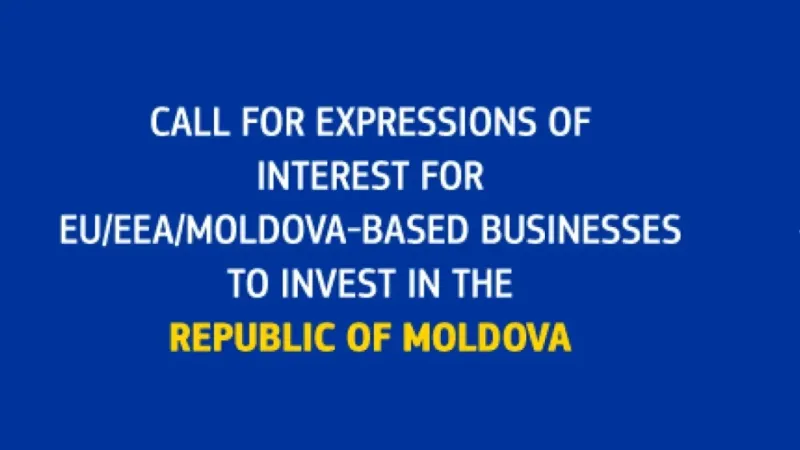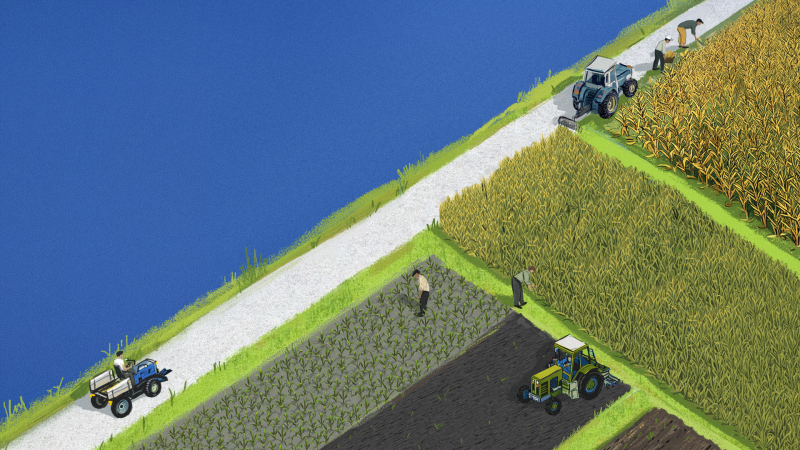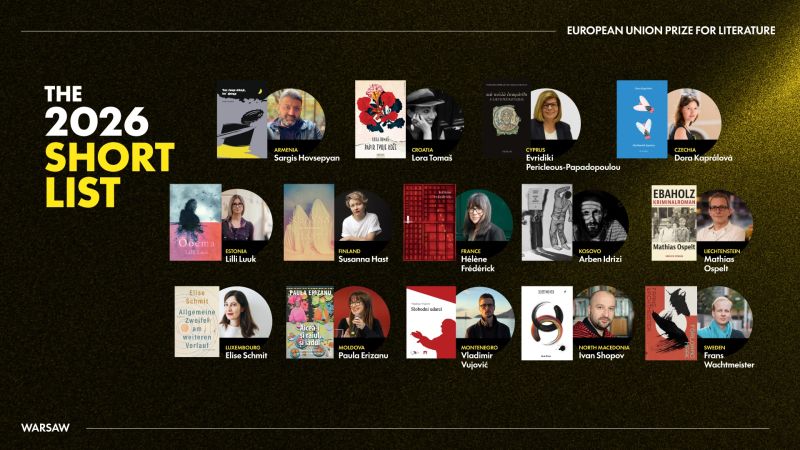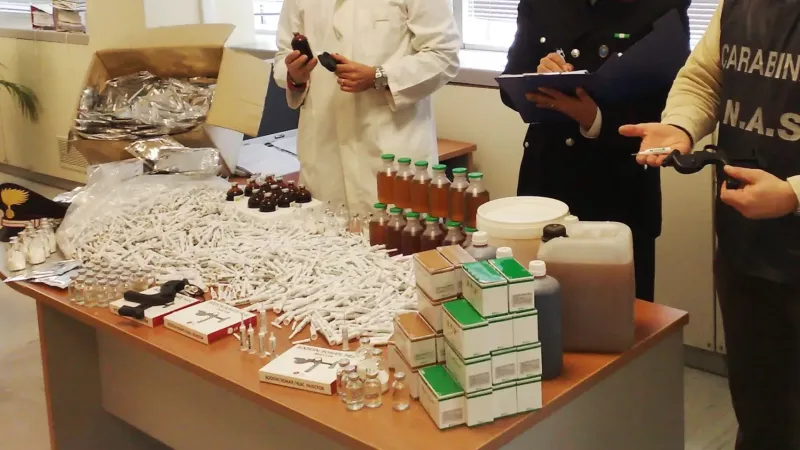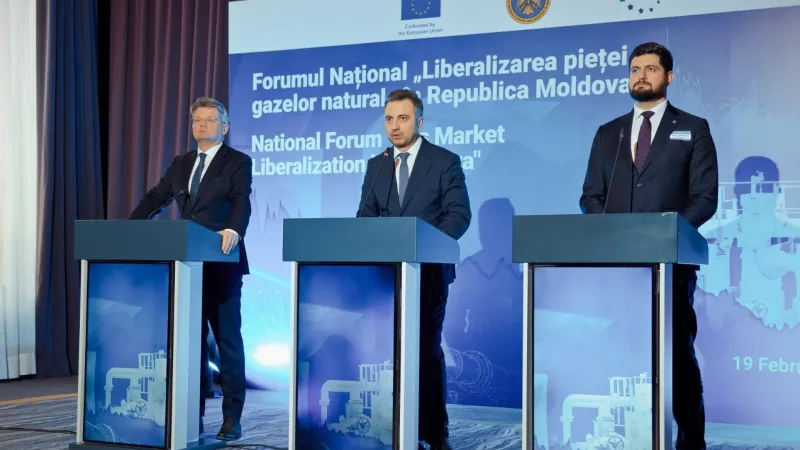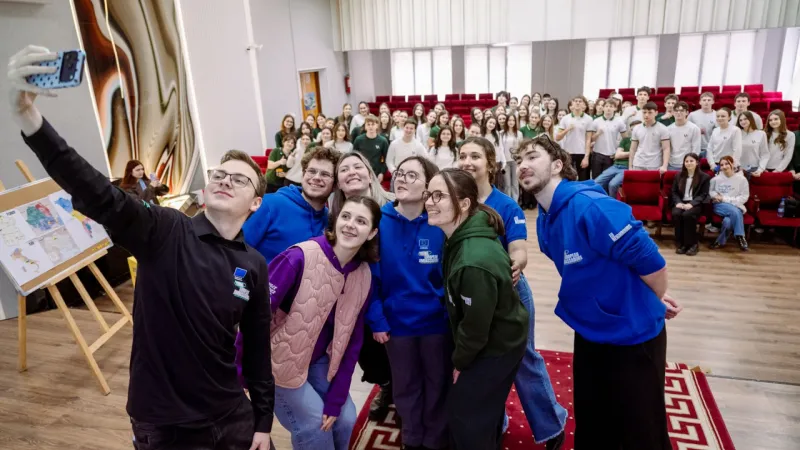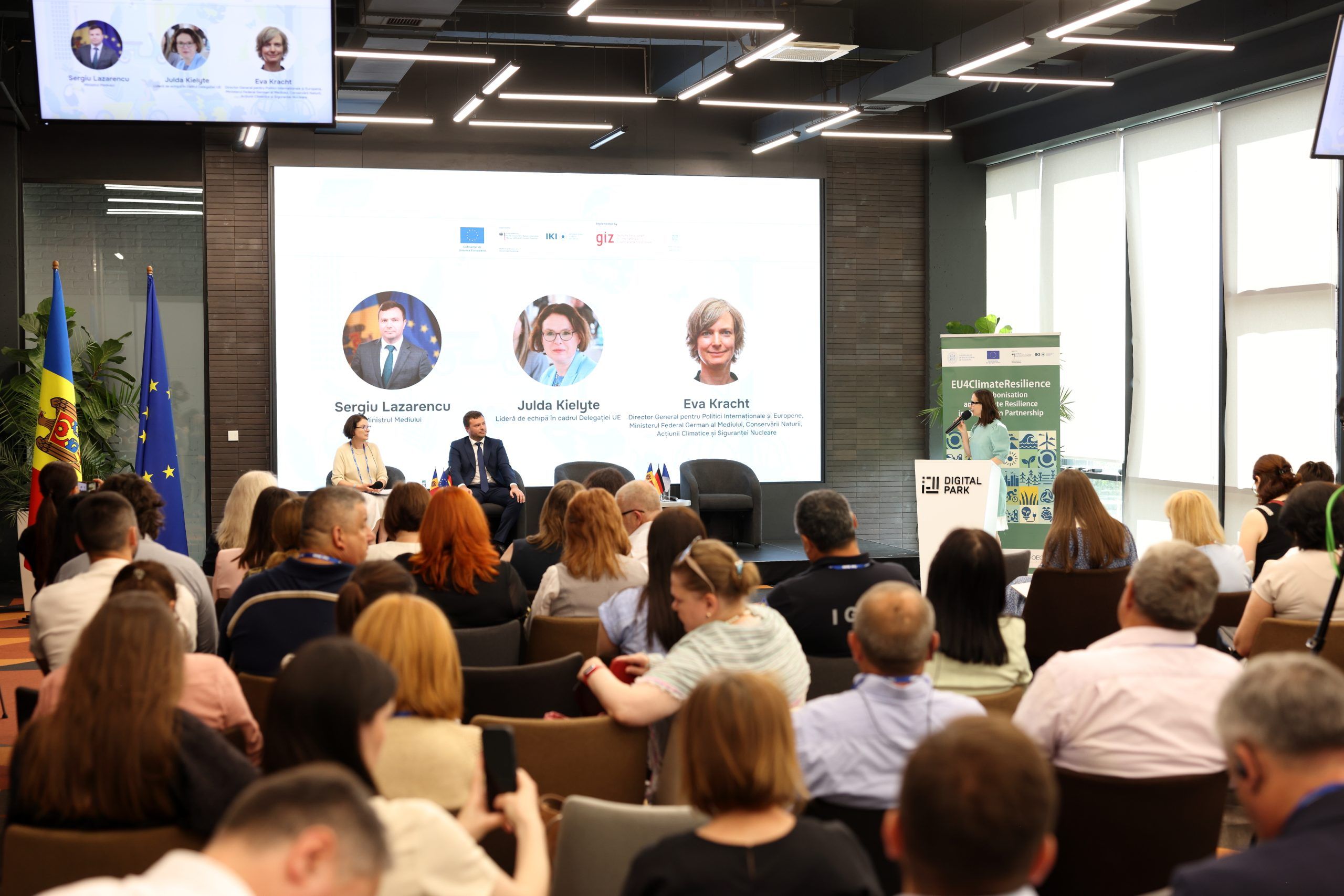
Cantemir and Ceadir-Lunga Receive Grants for Local Climate Resilience
EU4ClimateResilience project and the Ministry of Environment of the Republic of Moldova organised on Thursday, 19 June 2025, the National Conference “Climate Resilience for Local Development”, with the participation of over 80 representatives of public administration, climate policy experts, international partners and civil society organisations. EU4ClimateResilience project is co-funded by the European Union and German Federal Ministry for the Environment, Nature Conservation, Climate Action and Nuclear Safety (BMUKN).
During the conference, the city of Cantemir and the municipality of Ceadir-Lunga received grant certificates under the EU4ClimateResilience project for the amounts of about 20,7 million MDL. Over the next two years, both localities will implement pilot initiatives focused on nature-based solutions for local climate change adaptation.
In Cantemir, an integrated rainwater harvesting system with automated irrigation will be built for the central park, covering an area of 7 hectares. The system will reduce the use of potable water for irrigation by 30% and help mitigate the urban heat island effect. The project also includes the planting of 500 climate-resilient native tree species and an educational programme for young people, engaging more than 800 students and teachers.
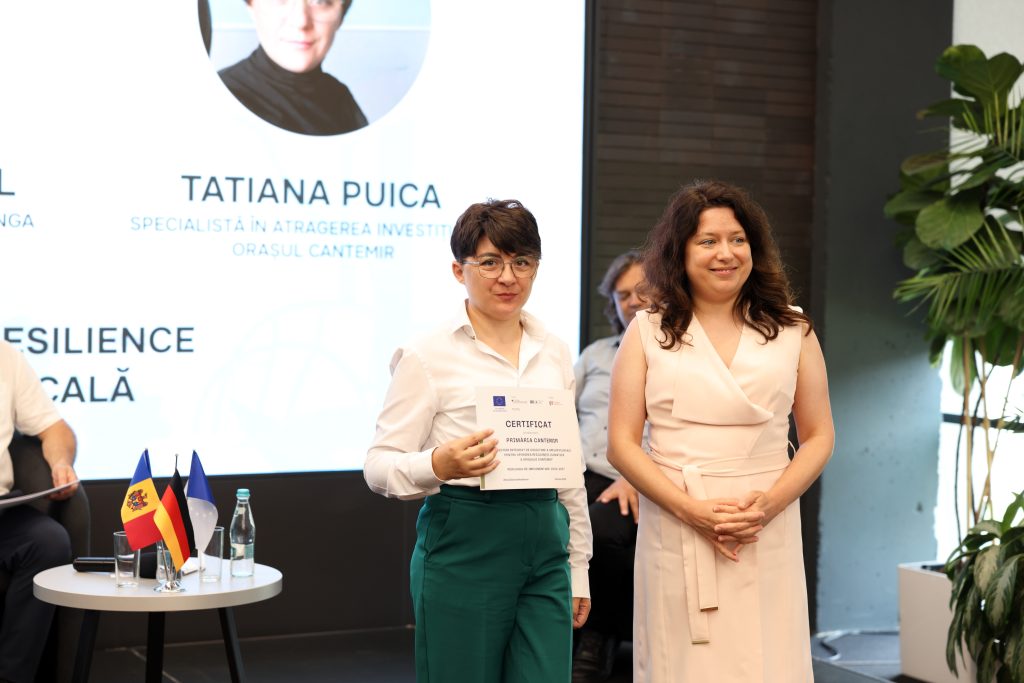
The project in Ceadir-Lunga targets establishment of an effective rainwater management system to prevent flooding, enhance conditions for cultivating planting material in the municipal nursery, and support the greening of Ceadir-Lunga by the end of 2026. Approximately 5,000 seedlings will be planted throughout the city and 2,250 meters of forest shelterbelts will be restored. The initiative actively involves citizens, who will participate in tree planting, workshops and community events.
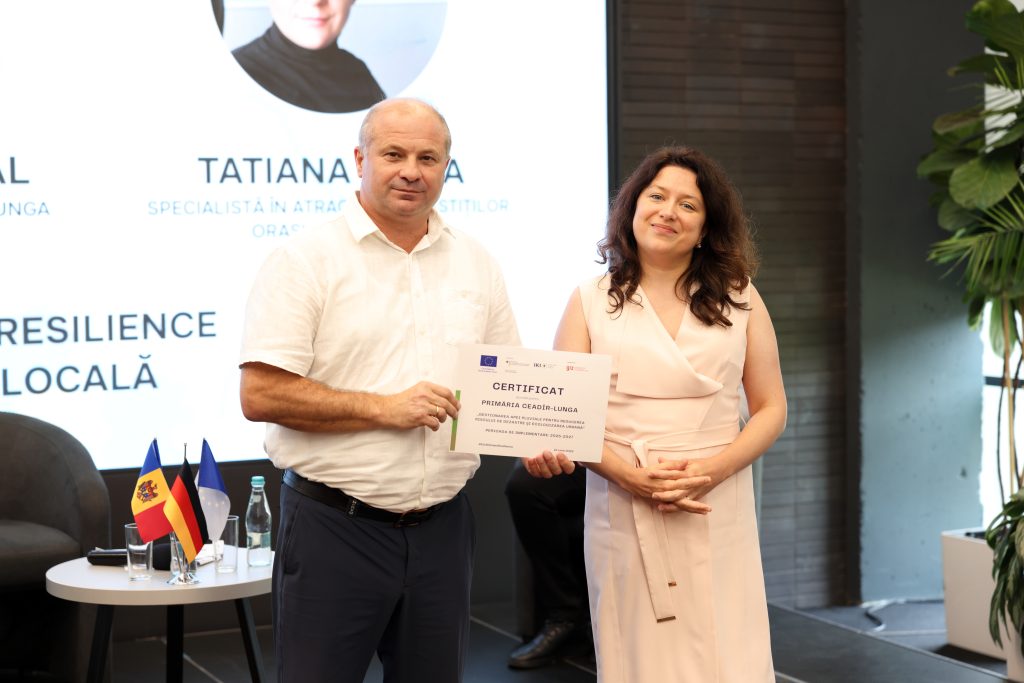
The National Conference offered a platform for dialogue between central and local authorities on challenges and solutions for local resilience adaptation and the promotion of nature-based solutions.
“Climate change adaptation starts at the local level, and the cities of Cantemir and Ceadir-Lunga demonstrate that vision, community engagement, and international partnerships can turn climate challenges into opportunities for sustainable development. The Ministry of Environment will continue to support initiatives that bring real solutions and resilience to the everyday lives of citizens”, stated Sergiu Lazarencu, Minister of Environment.
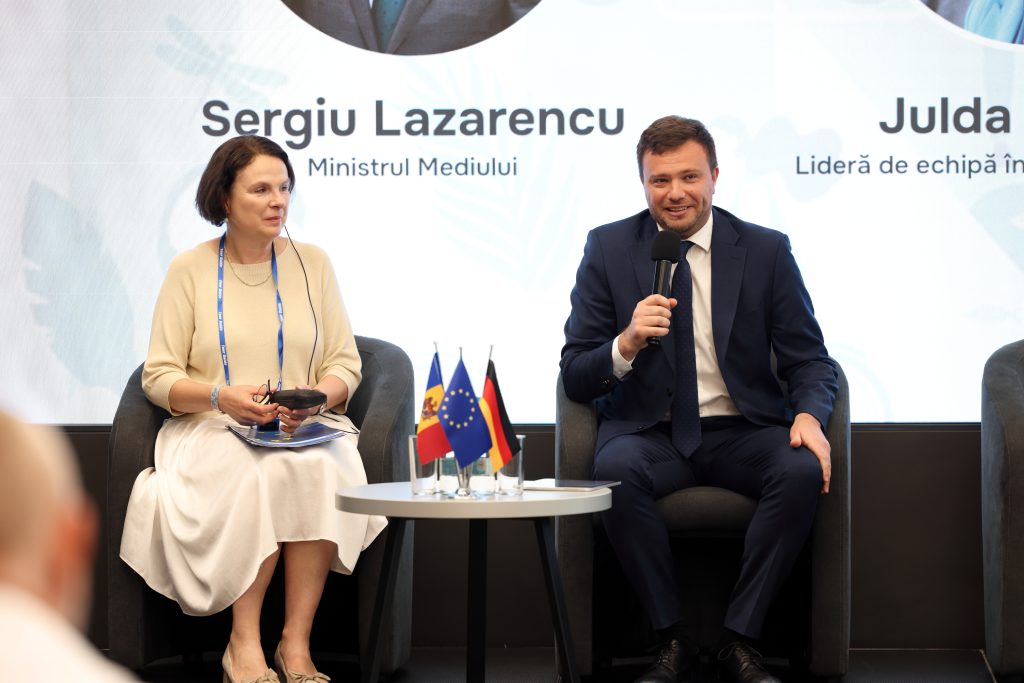
Speaking on behalf of the European Union, Julda Kielyte, Team Leader at the EU Delegation to the Republic of Moldova, emphasised the strategic importance of the EU4ClimateResilience initiative:
“Through EU4ClimateResilience, we aim to build stronger institutions, align regulatory frameworks with EU climate policy, and enable tangible climate adaptation projects on the ground that will protect lives, livelihoods, and ecosystems, and support Moldova on its EU path.”
Eva Kracht, Director-General for International and European Policy at the German Federal Ministry for the Environment, Nature Conservation, Nuclear Safety and Consumer Protection (BMUV), drew attention to the global urgency of climate action: “Climate change has become a reality, with its impact felt at the individual, community, and global levels. We must acknowledge a hard truth: the costs of adaptation are increasing every year that we delay meaningful action. Every year of inaction doubles the challenge, making future responses more expensive, more difficult, and more disruptive”.
The conference reaffirmed the shared commitment of national and international stakeholders to accelerate climate adaptation across Moldova, especially at the local level, where change is most needed and most impactful.
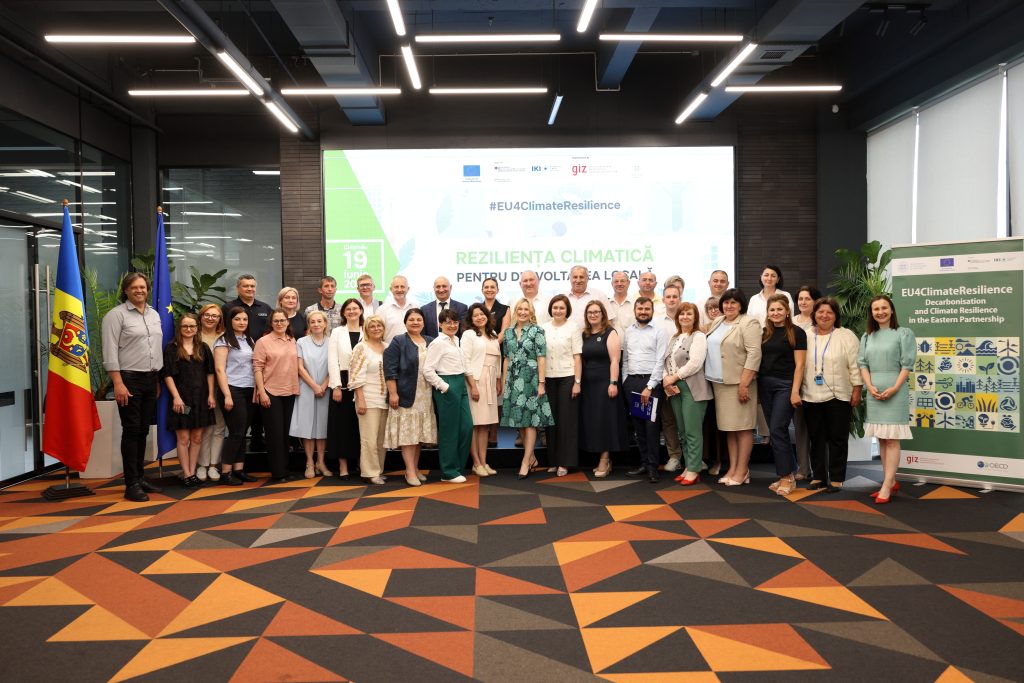
EU4ClimateResilience Project
EU4ClimateResilience is a regional initiative that supports the Eastern Partnership countries (Armenia, Azerbaijan, Georgia, Moldova and Ukraine) in strengthening climate policies and enhancing local resilience.
The initiative is co-funded by European Union and the German Federal Ministry for the Environment, Climate Action, Nature Conservation and Nuclear Safety (BMUKN), and is implemented by the Deutsche Gesellschaft für Internationale Zusammenarbeit (GIZ) (Outcome 1 and 2) and OECD (Outcome 3).
In the Republic of Moldova, the project provides direct support to local public authorities to implement concrete climate adaptation measures, including demonstrative investments and institutional capacity building.
